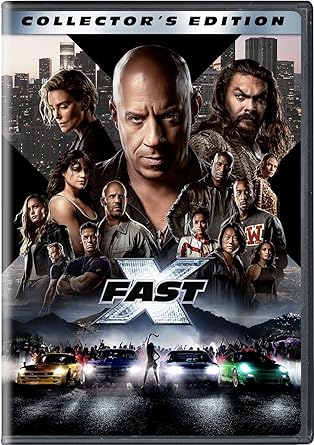Maybe every journalist should be forced to read kevin D. Williamson until they "get it". Specifically, this bit that we quoted last week.
[T]he one almost universally shared assumption of modern diplomatic discourse is that the Palestinian Arabs are something less than whole and complete human beings, that they are not advanced enough to be true moral actors because they do not have the strength of national character to bear the moral weight that falls exclusively upon the shoulders of the Israelis and the peoples of the other liberal democratic states.
That's been bouncing around my head for the past seven days, and it just gets more insightful. It came to mind once again when I read this headline earlier today on the Wall Street Journal website:
World Leaders Press Israel to Minimize Civilian Casualties
Gee, thanks, "World Leaders". You sure did demonstrate KDW's point about "the moral weight that falls exclusively on the shoulders of the Israelis". Are you pressing Hamas about anything? At all?
Or it could be the WSJ headline writer. Who knows where along the line that the "universally shared assumption" was added: that Israel's enemies can't be "pressed", let alone required, to adhere to minimal standards of decent, non-barbarous behavior.
Isn't that actual bigotry, the unspoken axiom that we can't expect those swarthy folks to act like "whole and complete human beings"?
In the paper's defense, the WSJ opinion section has its head together. Today's brings a clear-headed idea from Jerome M. Marcus: Israel Needs Unconditional Surrender From Hamas.
Meanwhile National Review has a Babylon Bee-worthy headline on an article by Becket Adams: The Media Will Never Forgive Israel for Not Bombing That Hospital. (Paywalled and I'm out of gifted links for this month, sorry.)
Few things are as dangerous as the newsroom that wants a story to be true.
An overzealous editor is how the really dangerous stuff gets printed.
The free press is supposed to operate from a set of principles, working within established guardrails to spare readers the publication of false information, including hoaxes and lies that may incite violence or escalate preexisting hostilities. All bets are off, however, when news editors have a deep-seated psychological need for a story to be true. And on this score, American media failed miserably this past week when major outlets falsely reported an Israeli missile strike had hit the Al-Ahli Arab Hospital in Gaza, leveling it completely and killing at least 500 civilians.
The story was suspect from the get-go, considering the sole source of the claim was the Gaza health ministry — in other words, Hamas, the Palestinian terrorist organization that runs Gaza. But this didn’t matter. The U.S. press wanted the story to be true, as evidenced by the indefensibly slipshod and irresponsible coverage that clogged up newsfeeds around the world.
Again we see that double standard at work: "news" is when Israelis are so evil/callous/careless to blow up a hospital.
What, that was a missile fired from Gaza? Never mind, what can you expect from those subhumans? Not news.
Also of note:
-
Truth: Setting people free since 30 AD. OK, maybe Jonah Goldberg might date it a little differently, but he's got interesting things to say about Truth and Power.
“We are writers and artists who have been to Palestine to participate in the Palestine Festival of Literature.” So begins an “An Open Letter from Participants in the Palestine Festival of Literature” published in the latest edition of The New York Review of Books.
It continues with the self-anointed self-seriousness that is normally reserved for critical theory syllabi controversies or faculty parking disputes: “We now call for the international community to commit to ending the catastrophe unfolding in Gaza and to finally pursuing a comprehensive and just political solution in Palestine.”
This made me wonder a few things. First, is there some The Poseur Radical’s Style Guide for Dummies out there that mandates such headline-topic sentence redundancy?
Headline: “An Open Letter from the Members of the Lollipop Guild”
Lead sentence: “We are members of the Lollipop Guild.”
Second, do the authors—or anyone else save perhaps some grad student with an unhealthy crush on one of the authors—think that there is a person of any power, influence, or responsibility over any issue relating to Israel, Gaza, or the Middle East who, upon hearing that some past attendees of the Palestine Festival of Literature have announced their demands, will do anything differently?
“Prince Bin Salman! Have you heard? They’ve broken their silence!”
“Who?”
“Look, your excellency,” the Saudi foreign minister said, handing his personal copy of The New York Review of Books to the crown prince.”
“Finally. This changes everything.”
That "open letter" is a demonstration of what Orwell said about language: "It becomes ugly and inaccurate because our thoughts are foolish, but the slovenliness of our language makes it easier for us to have foolish thoughts."
Case in point: This sentence:
On Saturday, after sixteen years of siege, Hamas militants broke out of Gaza.
is followed immediately by this sentence:
More than 1,300 Israelis were subsequently killed with over one hundred more taken hostage—some of them friends and family of signatories to this letter.
The thing I noticed was the quick shift to the passive voice. The forgotten subject: Who did the killing and hostage-taking? Hey, those "militants" vanished pretty quickly.
-
Ayn Rand! Thou shouldst be living at this hour. She would have a few (thousand) choice words to expend on The FTC’s Amazonian Snipe Hunt. But David Gillette and Warren Barge do a pretty good impression of the lady:
When lockdowns were the order of the American day, we worried. The media highlighted only the worst predictions, and we did not know what would happen next. Whether transitioning from high school to college or returning from spring break, we both had serious concerns about what the future held. But one thing concerned neither of us: receiving online purchases in a timely manner. The reason: Amazon.
During those trying times, Amazon scaled up its operations and rose to the challenge, ensuring that consumers could get the products they could no longer find in, or felt unsafe purchasing from, brick-and-mortar stores. In the midst of COVID-19’s first year, Amazon increased its workforce by over a third, hiring 175,000 new warehouse workers and bringing its total employee count to 876,000. Amazon’s earnings soared, but more importantly, the company provided many of us with a semblance of normalcy when it was in very short supply.
Despite the public’s largely positive perception of Amazon after its adept response, last month, the FTC filed suit against Amazon, asserting that Amazon has “exploited its monopoly power to enrich itself while raising prices and degrading service for tens of millions of American families who shop on its platform and the hundreds of thousands of businesses that rely on Amazon to reach them.”
People get all misty-eyed about "small" and "local" business. That's fine. But there are a lot of things only an Amazon is flexible and resourceful enough to do. Which is often better than fine.
And this is the thanks they get: threats and suits from the FTC.
-
![[Amazon Link]](/ps/asin_imgs/B0094PMI9I.jpg)
(paid link) But who will play him in the movie? Jack Butler reviews Ibram X. Kendi's Total Work of Grift. He starts by referencing the article we blogged about last week:
Over the weekend, Colorado State University philosophy professor Andre M. Archie argued that the anti-racism agenda of Ibram X. Kendi — briefly: that the many disparities of our systemically racist society are ipso facto proof of discrimination, and the only way to fight bad discrimination is with good discrimination — is a betrayal of the American color-blind vision that alone can save us from endless racial recrimination, and is therefore a dead end. “We cannot afford to go along any further with the anti-racism message,” Archie wrote.
We may not be able to afford continued endorsement by the commanding heights of our culture of Kendi’s pernicious worldview, as institutions captured by it would persist in an endless bout of self-abnegation. But Kendi himself cannot afford for them not to. Anti-racism may be an intellectually bankrupt dead end for the rest of us, as we would be reduced to crude racial caricatures without individual agency. But for him, it is a crowning achievement for which he has been richly rewarded, and a nigh-artistic accomplishment in grift.
There are a lot of talented young black comedians out there who could be a convincing IXK. How about Michael Che from SNL?
-
Another bit of wisdom from the always reliable Kevin D. Williamson: Fatigue Is a Political Strategy.
Do you ever wonder how much fatigue is part of the agenda?
If you are in my business, you’re used to hearing the same nonsense talking points day after day from the same people, and you learn to more or less ignore it. It’s part of the job, part of what we get paid to do. But for people who have other kinds of jobs and other kinds of lives, one wonders how many times are they going to respond to nonsense such as, “The economy does better under Democratic presidents!” or “Putin didn’t invade Ukraine when Trump was in office!” and things of that nature. The arguments are silly and meretricious, and the people making the arguments often know they are silly and meretricious. Sometimes, you have to respond to them—sometimes I do, because it is my job—but, sometimes it is a waste of time.
Fortunately, I've got plenty of time to waste, Kevin.
Recently on the book blog:
Recently on the movie blog:
![[Amazon Link]](/ps/asin_imgs/B07791VZP5.jpg)


![[2.5 stars]](/ps/images/25stars.gif)
![[IMDB Link]](https://ia.media-imdb.com/images/G/01/imdb/plugins/rating/images/imdb_46x22.png)
![[The Blogger and His Dog]](/ps/images/me_with_barney.jpg)



